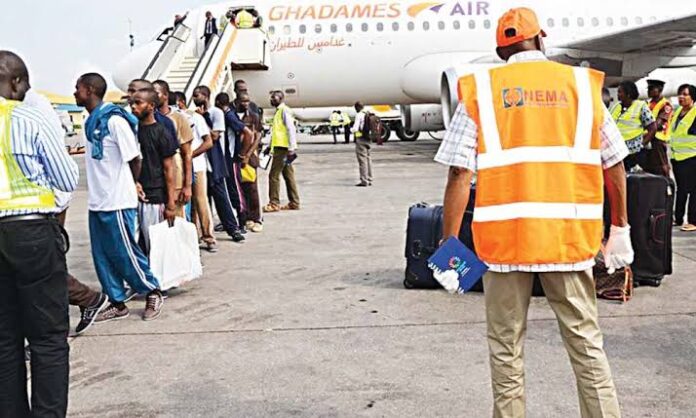Nearly 3,700 Nigerians face U.S. deportation
Approximately 3,690 Nigerians in the United States are at risk of deportation due to former President Donald Trump’s crackdown on illegal immigration.
According to a report from U.S. Immigration and Customs Enforcement (ICE), which was reviewed by newsmen on Tuesday, the agency compiled data detailing the nationalities of individuals facing deportation, revealing a substantial number of non-citizens with final removal orders.
As of November 24, 2024, the document titled “Noncitizens on the ICE Non-Detained Docket with Final Orders of Removal by Country of Citizenship” indicates that there are 1,445,549 non-citizens on ICE’s non-detained docket with final removal orders. Mexico and El Salvador top the list, with 252,044 and 203,822 individuals, respectively, set to be deported.
ICE is tasked with protecting the U.S. from cross-border crime and illegal immigration that pose threats to national security. Recently, as part of his tough stance on illegal immigration, Trump initiated mass deportation operations. Last Thursday, hundreds of migrants were detained, and some were flown out of the U.S. on military aircraft.
Amid this crackdown, Nigerians, along with other African immigrants, are becoming increasingly concerned that they could be the next targets of deportation. This fear stems from Trump’s aggressive immigration policies, which include halting birthright citizenship for children of unauthorized immigrants, as well as his pledge to remove “criminal aliens” from the country.
Since his inauguration, Trump has signed numerous executive orders aimed at tightening immigration laws, including declaring a national emergency at the southern U.S.-Mexico border and deploying additional military personnel to the area.
In a related development, Colombia’s President Gustavo Petro recently agreed to allow U.S. military planes to transport deported immigrants into his country. This followed a brief period when Colombia had blocked two deportation flights, citing concerns over inhumane treatment of those on board.
The situation sparked a tense exchange between the two leaders, with Trump threatening to impose tariffs and sanctions on Colombia. In response, the White House issued a statement indicating that, with Petro’s agreement, some penalties, including tariffs and sanctions, would be temporarily suspended. However, visa sanctions against Colombian officials will remain in place until the first deportation flight arrives in Colombia.
The Colombian government later released a statement confirming that they had resolved the dispute with the U.S. and would accept all deportation flights, ensuring that deported individuals would be treated with dignity upon arrival.
This conflict between Trump and Petro highlights the broader global tensions surrounding the U.S. government’s deportation policies under the Trump administration.
Follow the Neptune Prime channel on WhatsApp:
Do you have breaking news, interview request, opinion, suggestion, or want your event covered? Email us at neptuneprime2233@gmail.com






